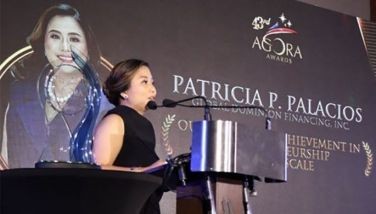Snowden caught in historic conflict
In one sense, Edward Snowden, the leaker of National Security Agency secrets, is in rare company: He's one of fewer than a dozen people charged under World War I-era espionage law in the near-century of its existence. The law was seldom used before Barack Obama became president. His administration has now used it seven times.
But Snowden is hardly unique. He is in the company of hundreds of others caught up in the long history of tension between the constitutionally guaranteed rights of U.S. citizens and government actions that abridge those rights in the name of national security.
The 30-year-old Snowden has admitted leaking details of confidential NSA surveillance programs to news organizations. His backers insist he is a whistleblower, a loyal American who acted to unmask government overreach that was trampling citizens' rights to privacy and free speech.
Among his supporters is Daniel Ellsberg, perhaps the most famous American whistleblower.
“This wholesale invasion of Americans' and foreign citizens' privacy does not contribute to our security; it puts in danger the very liberties we're trying to protect,†Ellsberg, wrote last month in the Guardian, the British newspaper that first published Snowden's material. Ellsberg was charged 42 years ago with espionage, among other crimes, for leaking the Pentagon Papers, the government study that cast a deeply negative light on the Vietnam War. He never went to trial after his case became intertwined with the Watergate wrong-doings of the Richard Nixon administration.
Snowden's detractors, especially the Obama administration, assert that his leaks harmed U.S. security and made it easier for America's enemies - like stateless al-Qaida terrorist operators - to avoid the never-blinking eye of Washington surveillance. The charges brought against Snowden could land him in prison for the remainder of his life if he is ever captured.
Snowden has been in the transit zone of a Moscow airport since June 23. He flew to Moscow after initially fleeing the United States to Hong Kong. On Friday, a member of the Russian parliament met with Snowden and said the fugitive wants asylum in Russia and is willing to stop sharing information as a trade-off for such a deal. The parliamentarian was among a dozen activists and officials to meet with Snowden.
Defending his administration's information gathering and tough approach in handling leaks and whistle-blowing, Obama has said: “You can't have 100 percent security and also then have 100 percent privacy and zero inconvenience. We're going to have to make some choices as a society.â€
Obama's reasoning falls in line with actions by previous presidents who moved to diminish some constitutionally guaranteed civil liberties. Notably, all of the most controversial actions happened during times of war. Obama and predecessor George W. Bush have had broad backing among Americans still shaken by the Sept. 11, 2001, terrorist attacks and far greater legal powers under the Patriot Act that was passed in response to the attacks.
“We have these laws in place now that just give the federal government massive amounts of power. And people tend not to get really riled up about it,†said Derigan Silver, a media studies scholar at the University of Denver.
But a new poll suggests that may be changing.
Quinnipiac University found that 55 percent of voters regard Snowden as a “whistleblower,†and 35 percent consider him to be a traitor. A plurality, 54 percent to 40 percent, of those surveyed also said government anti-terrorism efforts have gone too far in restricting civil liberties. Three years ago, a similar survey found 63 percent saying anti-terrorism activities didn't go far enough, compared with 25 percent who disagreed.
“The massive swing in public opinion about civil liberties and governmental anti-terrorism efforts, and the public view that Edward Snowden is more whistleblower than traitor, are the public reaction and apparent shock at the extent to which the government has gone in trying to prevent future terrorist incidents,†said Peter Brown, assistant director of the Quinnipiac University Polling Institute.
The battle between civil liberties and national security stretches back centuries.
John Adams, the second US president, used the Alien and Sedition Acts of 1798 during a threat of war with France. It gave him powers to deport opponents who were not yet American citizens and led to the closure of several opposition newspapers. Thomas Jefferson's opposition to the acts helped him defeat Adams in the next election. Jefferson pardoned all who had been convicted under the laws. The acts expired or were repealed by 1802, with the exception of the Alien Enemies Act which has often been used in wartime.
President Abraham Lincoln was caught up in the tension between citizens' rights and government security when in 1862, during the Civil War, he declared martial law and suspended the rights of prisoners to have their cases heard in civilian court, meaning they could be tried by the military or held indefinitely.
President Woodrow Wilson, shortly after US entry into World War I in 1917 and concerned about Americans' opposition to the war, pushed for the Espionage Act, declaring it necessary to punish anyone who gave out information about the armed forces, sought to interfere with military operations, refused military service or obstructed enlistment.
In the next world war, President Franklin Roosevelt ordered the internment of Japanese residents after Tokyo's attack on Pearl Harbor. Records show about two-thirds of those ordered into internment camps were already American citizens. The action was clearly a violation of civil liberties and a major historic stain on the record of one of the most important U.S. presidents.
“All these are cases where the balance tilted in the wrong direction. But it's also clear if you cannot provide basically some key aspects of security, government cannot function,†said Anthony Cordesman, former director of intelligence assessment in the office of Defense Secretary and now a national security analyst at the Center for Strategic and International Studies.
On its face, Obama's administration would seem an unlikely one to step up use of the Espionage Act against leakers and whistleblowers. He is a liberal Democrat and former constitutional law professor who pledged to make government more open.
His government's use of the law has cast a chill on free speech and freedom of the press, said Kathleen McClellan, a lawyer at the Government Accountability Project, which represents two of the seven people charged with espionage.
“If we continue down this road, the public is only going to be able to hear what the government wants the public to hear because any source that is not approved at the highest levels†will now fear giving information to reporters, McClellan said.
Silver, of the University of Denver, notes the administration leaks information that benefits the White House while cracking down on those who give out information that casts it in an unfavorable light.
“When you're granting access to certain people and you're giving them anonymous stories and anonymous scoops, the official story becomes the only story,†Silver said.
- Latest




















